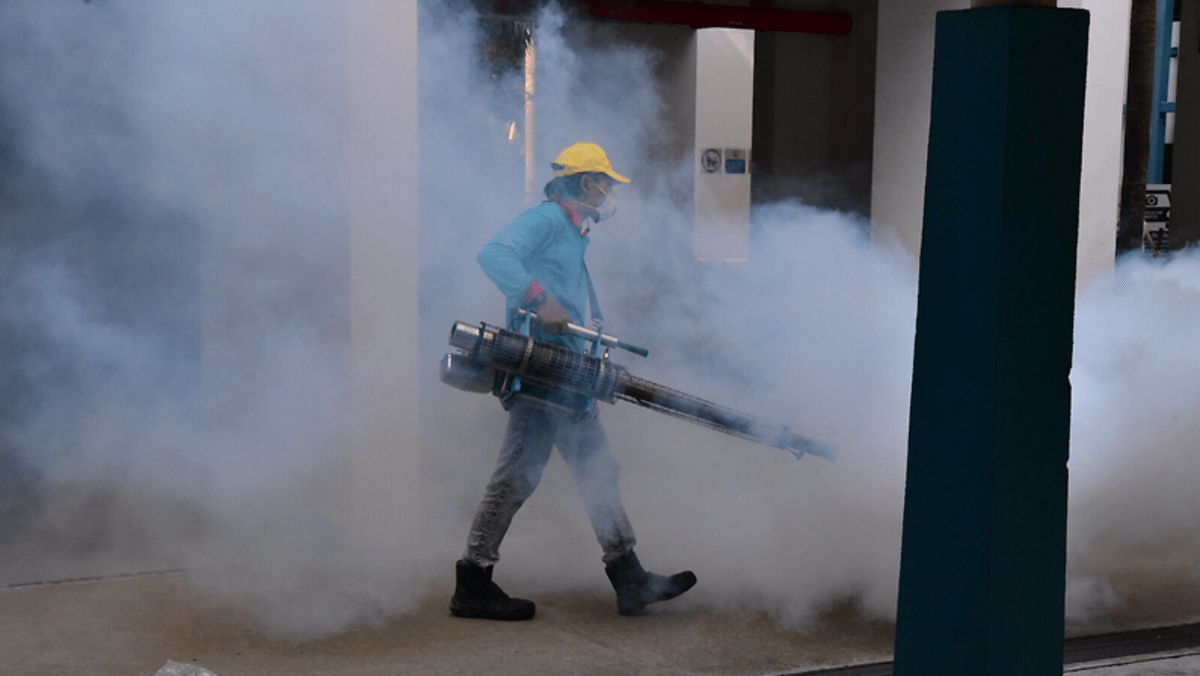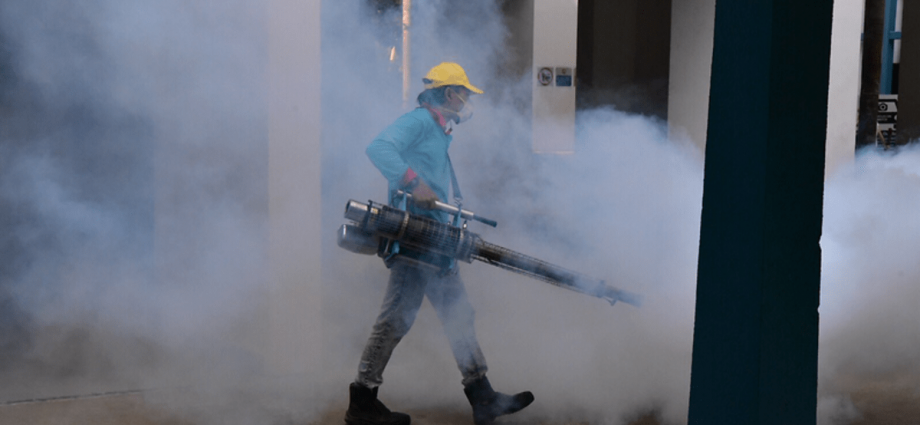
To combat the resurgence, NEA brought forward the launch of the National Dengue Prevention Campaign, where the new purple community alert banners were launched as part of the colour-coded Dengue Community Alert System to inform residents of the dengue situation in their estate.
“Responding to early signs of an outbreak, we activated the Inter-agency Dengue Task Force for intensive source reduction efforts in anticipation of a rise in cases,” said the NEA.
The alert banners were placed in non-dengue cluster areas with a persistently high Aedes aegypti mosquito population as a visual reminder for residents to take proactive prevention measures to minimise the risk of dengue cluster formation.
NEA also worked with partner agencies in its outreach efforts and jointly distributed 800,000 bottles of mosquito repellant to students in preschools, primary and secondary schools with Temasek Foundation.
To complement these efforts, NEA also released more male Wolbachia-Aedes mosquitoes at eight additional field sites since July 2022 under Project Wolbachia.
Under the project, male Wolbachia-carrying Aedes aegypti mosquitoes will mate with females, causing them to lay eggs that do not hatch, thus reducing the dengue mosquito population.
As part of enforcement efforts, the NEA conducted around 409,000 inspections across Singapore in the first half of 2022, including 2,800 inspections at construction sites. In the same period, the NEA issued fines to 1,300 households for mosquito breeding, and 6,565 legal notices to homeowners and occupiers.
The authority also issued 70 Stop Work Orders to construction sites and charged 28 contractors in court. Around 11,300 mosquito breeding habitats were detected in the first half of 2022, across all types of premises.
The NEA said, “Despite the unusual early rise in dengue cases this year, the collective efforts of stakeholders and the community have allowed us to manage the outbreak, without reaching the peak dengue case numbers seen in the huge 2020 outbreak. However continued vigilance is critical, as weekly dengue cases remain high and could continue to remain high beyond the traditional peak dengue season.
“NEA therefore urges all stakeholders to sustain dengue prevention measures, to bring down dengue case numbers further.”

